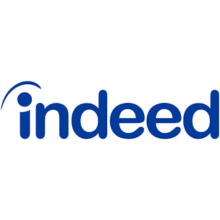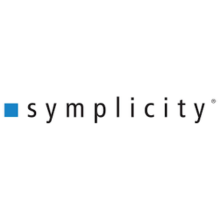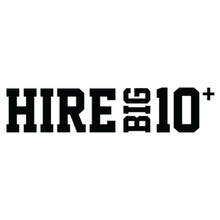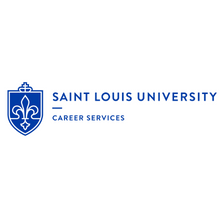- Home
- About
- Membership
- Events
- Awards & Honors
- Career Opportunities
- Member Resources
Wednesday, July 26 Break-Out Sessions8:30 a.m. - 9:30 a.m. Break-Out Session Tracks: College Employer Both, College and Employer Break-Out Session Levels: Level 1: New Professionals (less than 5 years) Level 2: Mid-Career Professionals (5-10 years) Level 3: Directors (10+ years) Level 4: All levels will benefit Dang that Workshop was LIT!: Innovative Approaches to Career Development Track: College Level: 2 Presenter:
Core service offerings by career service offices include workshops, one-on-one coaching, and classes. Connecting to and successfully engaging students in these settings is fundamental to furthering their career development and core competencies (NACE, 2016), retaining them as students (Feldman, 2005), and helping them become successful as young professionals. Traditional approaches in engagement can become stale, leaving students feeling as if we are either not speaking directly to them or, even worse, talking down to them, leading to disengagement in the information and the career development process. At the University of Nebraska-Lincoln's College of Business Administration, student evaluations of mandatory career courses indicated that students dislike traditional activities because they fail to see the application of career development theory as business students. To address the issue, Career Services at CBA has developed innovative approaches to traditional career development activities and topics that engage students and help them understand why the activities are directly applicable to their degree and career interests. To begin the process, staff assessed a combination of course evaluations and generational research. Research indicates that Generations Y and Z are more realistic than their Generation X counterparts, tech-savvy (Casella, 2015), and entrepreneurial in nature making them far more likely to carve their own path rather than look to traditional employment (Schwabel, 2014). Considering all the research, it becomes clear that traditional career development activities may not work for the new student. Students want to know how they can develop into the best version of themselves in order to make a positive impact on the world, whether that be through traditional employment or by starting their own business (Pollak, 2016). Taking the time to understand the world view of the new generation of students and transforming activities accordingly has led to increased engagement in the topics of self-assessment, networking, resume development, and professional goal-setting. Breaking from traditional norms, Career Services at CBA has sought out, transformed, and implemented activities, tools, and terminology leveraged by employers in a variety of capacities in appointments, workshops, and classes. By leveraging the same activities and terminology as employers and explaining to students the sources of the activities, students are engaging in the process at higher numbers as well developing into polished professionals. In this session, we will examine the research that led to the adaptations and innovations as well as offer solid examples of what has worked and how it can be adapted by other offices and campuses. The examples offered can be applied in career service offices at a wide range of institutions, from large research-based universities to community colleges. Participants will be engaged in large group discussion, small group discussion, and hands-on learning through engaging in one or more of the activities themselves. The intent of this presentation is to challenge participants to rethink their own approaches to teaching career development to maximize student engagement in the process. Keep Calm and Recruit On - Track: Employer Level: 4
*Time the Wisest Counselor: Understanding Individual and Cultural Time Perspectives Track: Both Level: 4
Click here to access a PDF of the presentation Presenter:
Our often unconscious and unspoken orientation to time can shape how we react to events, make daily choices, and communicate. Understanding diverse views on time can broaden our awareness and appreciation for individual and cultural differences. This presentation will explore two different time perspectives. Hall’s monochronic and polychronic time perspectives offer contrasting views on the tempos at which cultures function. A practical application of cultural chronemics, helping International students master domestic interviewing skills, will be shared. Another more individualistic take on time, Zimbardo’s Time Perspective, will also be explored. Whether we are stuck in past problems, caught up in a whirlwind of present experiences or driven to achieve future goals we can live out of temporal balance and unwell. Research has shown that a flexible approach to time helps lead to a balanced life. The presenter will offer exercises to increase personal time flexibility. Additionally, working with special student populations and with generational issues will be considered. Revitalize Career Counseling & Job Search Skills!
Track: College Level: 1&2
Focus on the Improvement of job-search counseling skills and resources for students in today's recruiting market. Specifics on enhancing resume writing and cover letter development, branding, LinkedIn use, and the resources available to counselors to enhance their work with students during the job search phase of career development. The importance of digital portfolios will be an emphasis for all majors. *The Benefits of Small Group Advising:
Track: College Level: 1&2 Click here to access a PDF of the presentation Presenters:
One-on-one appointments continue to be the main way students interact with career offices. However, with increasing demands on career professionals' time how can we meet the needs of students in a different format? Moreover, how can we encourage students to learn from each other? This session will address one way, which is through small group advising. Both presenters have been revitalized by working with students in a new way, and want to share what they have discovered. By attending this session, you will learn how to implement small group advising that works for your institution from the perspective of career professionals at two very different institutions: a private liberal arts institution and a state funded large public institution. *Contributing to a Positive Campus Climate as Career Services Professionals Track: College Level: 4 Click here to access a PDF of the presentation
Across the country, colleges have been seen as a microcosm to larger climate issues facing our country. Career services professionals are tasked to prepare all students for life after college, but we are missing the mark if we are passive in diversity efforts on our campuses. The University of Michigan's University Career Center staff is positioning our office as positive, impactful contributors to creating an inclusive environment on our campus and has launched new goals and initiatives to be active players in this work. To do this requires moving beyond the transactional work of resume critiques and powering job search portals. Instead,the complex impact that students' various identities have on their career process must be intentionally included in our work. This intentionality validates students' past, acknowledges their developmental journeys, and more fully prepares them for their professional future. This year, the University Career Center has implemented new high-impact practices that address our commitment to diversity, equity and inclusion: -Specialized programs. Students often need tailored services in order to meet their specific needs. We have revamped our programming model so that at least 20% of our workshops are tailored to special student populations we have identified based upon social identities, affiliations (student athletes), and academic level (non-academic searching PhDs). The content has been tailored to address the needs of the specific communities. These workshops are lead by the liaisons who have established trust with the student organizations and offices that serve the student population. -Building social capital. Social capital is an important part of a job search, regardless of background. To provide equitable access to professionals and alumni for all of our students, the UCC launched the University Career Alumni Network (UCAN), a platform to connect U-M alumni to current students for short-term mentorship. -Reinforcing relationships on campus. Relationships with campus partners have always been an important aspect of our work, but this year we have focused on developing more active collaborations with units working with specific groups. As an example, our involvement with the Services for Students with Disabilities has grown from a passive liaisonship to an active and integral partnership involving constant communication, referrals, and ongoing-programming. The traffic from students with disabilities has increased as the trust level with these students has grown and the rapport with the staff, who value the career expertise, has been enhanced. -Utilizing collaborative, small group sessions. The non-academic job searching PhD students have, more than ever, felt the stress of a changing job market. Intentional efforts were made to understand the needs of this population, and as a result, an infusion of resources and new initiatives were developed. An outcome of their feedback was the creation of a career support group done in partnership with the counseling center that provided a forum for expressing their issues and normalizing their experiences as well as tangible strategies to move them forward in their job searches with greater career confidence. -Increasing professionalism. After promoting the need for professionalism at events with employers, we became concerned that the standards of professional dress were not easily reached within the budgets of our students. We launched a free closet for students to take home professional items. U-M staff donated over 2,000 items, showcasing to students the University's commitment to their career success. This session will ask: how will we part of the solution? The group will brainstorm challenges facing today's students in the career preparation process and focus on tangible, take-home solutions for playing more active roles on our campuses.
Midwest ACE Award-Winning Assessment Project: Experience Examples, Propose Your Own!
Come explore MWACE’s 2016 award-winning assessment and research projects. Learn about assessment strategies for demonstrating the value of networking programs that connect underrepresented students and alumni (2016 John D. Shingleton Award for Innovation winner). Then, see hot-off-the-press results from a study of career competency and self-efficacy development for paraprofessional student employees in career services (2016 John Steele Grant winner). Discuss implications of these studies for career services professionals, and discover resources for your own assessment work. Learn how to propose your own projects to submit for these award programs. |




